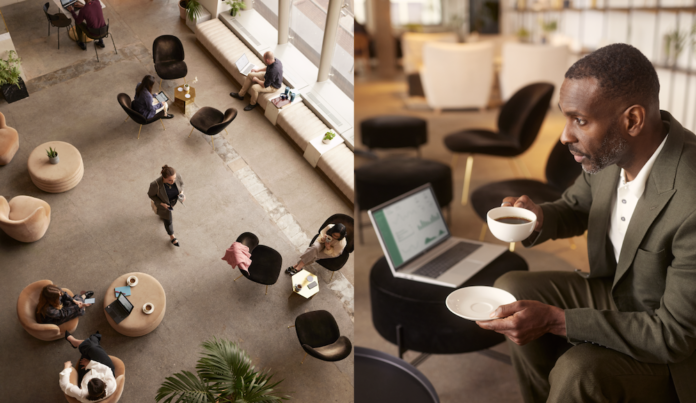Independent cafe is popular option for WFH
Britain’s office workers have been left out in the cold by COVID-inspired working from home (WFH) regimes, according to a report by Three UK. The prices of commuting and central heating have created a new hierarchy of needs, warmth and w-fi, and now the UK mobile operator is developing a policy to turn the high street into a popular home office.
Fero Moshfeq, owner of the Lavatte café in central Birmingham, said the number of customers who work from the café is on the rise. “People want a change of scenery and ways to cut down spending over winter.”
After Three Business quizzed 2,000 office workers it discovered that seven in ten (70%) fear the impact of working from home on their energy bills and two thirds about the cost of commuting. Nearly all (92%) want to find a way to rationalise their costs. Three quarters of them said they were troubled by the prospect of their next power bill.
In response Three Business gave three independent cafes in Birmingham a package to turn them into local flexible working hubs. As part of a pilot scheme starting today, the company is giving three locations a connectivity grant of two years of free Superfast 5G Business Broadband, plus a hot drink tab for local office workers and marketing support to attract more customers.
Everyone hurts from inflation and the death of the local economy, so working from the high street could ‘win-win’ both footfall for local businesses and respite for workers, according to Director of Three Business Snehal Bhudia. “We’re doing our bit to support them by raising awareness and providing strong connectivity to make it happen,” said Bhudia.
Three’s research found that 71% of workers would work from their local café if it helped it survive the cost-of-living crisis. An independent café was the most popular destination for WFH, opted for by 46% of the survey. The other less popular options were; co-working space (cited by 36%), a coffee chain (33%), a hotel lobby (12%) or a pub (10%). Did Three forget to ask about local libraries?
Poor or unreliable internet connections are stopping 49% of people from working in their local café with three quarters (74%) saying they would try it, if they knew they could trust the Wi-Fi.
“Support from Three Business creates an incentive for people who haven’t considered working from a café before and we look forward to welcoming them,” said Lavatte café owner Moshfeq.



